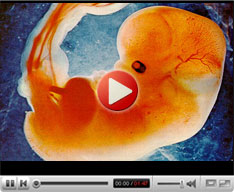Hormone Assays
Female Hormonal Assays
Hormonal assays are advised and recommended by your obstetrician/gynecologist when irregularities are identified in your menstrual cycle or physical examination. We at ARMC offer various hormonal procedures such as tests to check FSH and LH levels, estrogen and progesterone levels, testosterone, thyroid tests, androgens and prolactin levels. The results of these hormonal tests are helpful in determining the cause of any irregularities and also the best treatment plan for each patient.
- Thyroid Tests: The thyroid-stimulating hormone (TSH) is checked for any problems affecting the thyroid gland. This hormone plays a crucial role in fertility, the ability to get pregnant and sustain a normal pregnancy, successful breastfeeding etc.
- Estrogen: Estrogen is important as itstimulates the development of the endometrium, the membrane that lines the uterus. There are three types of estrogen found in the body - estrone, estradiol (E2), and estriol. Reduced levels of estradiol indicate unhealthy eggs present in the follicles. Estrogen levels are normally measured over many days since they vary greatly during the menstrual cycle.
- Progesterone:The hormone progesterone is produced after ovulation and it indicates if there has been a successful implantation. The progesterone test is carried out four to nine days after predicted ovulation to identify if ovulation has in fact occurred. Low levels of progesterone indicateabsence of ovulation or anovulation.
- Prolactin: The prolactin hormone is responsible for stimulating production of milk during pregnancy. Excess prolactin secretion results in a condition called hyperprolactinemia which can cause a number of reproductive dysfunctions such as absence of menstruation, irregular ovulation and menstruation and galactorrhea.
- FSH and LH Levels: Follicle Stimulating Hormone (FSH) and Luetinizing Hormone (LH) control the functions of the ovaries. These hormone tests are normallyadvised for women who have irregular menstrual cycles or who do not ovulate normally.

- Testosterone and Other Androgens: The ovaries and adrenal glands usually produce small amounts of male hormones called androgens such as testosterone. Over-production of these androgens adverselyaffects normal ovulation.
Male Hormonal Assays
Male hormonal testing is recommended by doctors tohelp couples understand what factors may be contributing to their inability to conceive. Infertility affects men and women with almost equal frequency. Factors that contribute to male infertility includepoor sperm motility, low sperm count and abnormal semen levels or function. At ARMC, we evaluate male hormones vitalfor sperm production, such asluteinizing hormone (LH), follicle stimulating hormone (FSH), prolactin and testosterone.
- Testosterone Tests:Testosterone is a hormone that stimulates production of sperms and is crucial for sperm motility. Low testosterone levels often translate to a low sperm count.
- Prolactin Tests:High levels of the hormone prolactin cause abnormal semen production.
- Follicle Stimulating Hormone (FSH) and Luteinizing Hormone (LH)Tests: The FSH hormone stimulates the production of sperms while the LH hormone stimulates the testes to secrete the hormone testosterone. High levels of both the hormones indicate a failure of testicular function while low levels of FSH and LH may indicate that the testes are not receiving an adequate stimulatory message from the pituitary gland or hypothalamus which can be improved with hormone therapies.

















